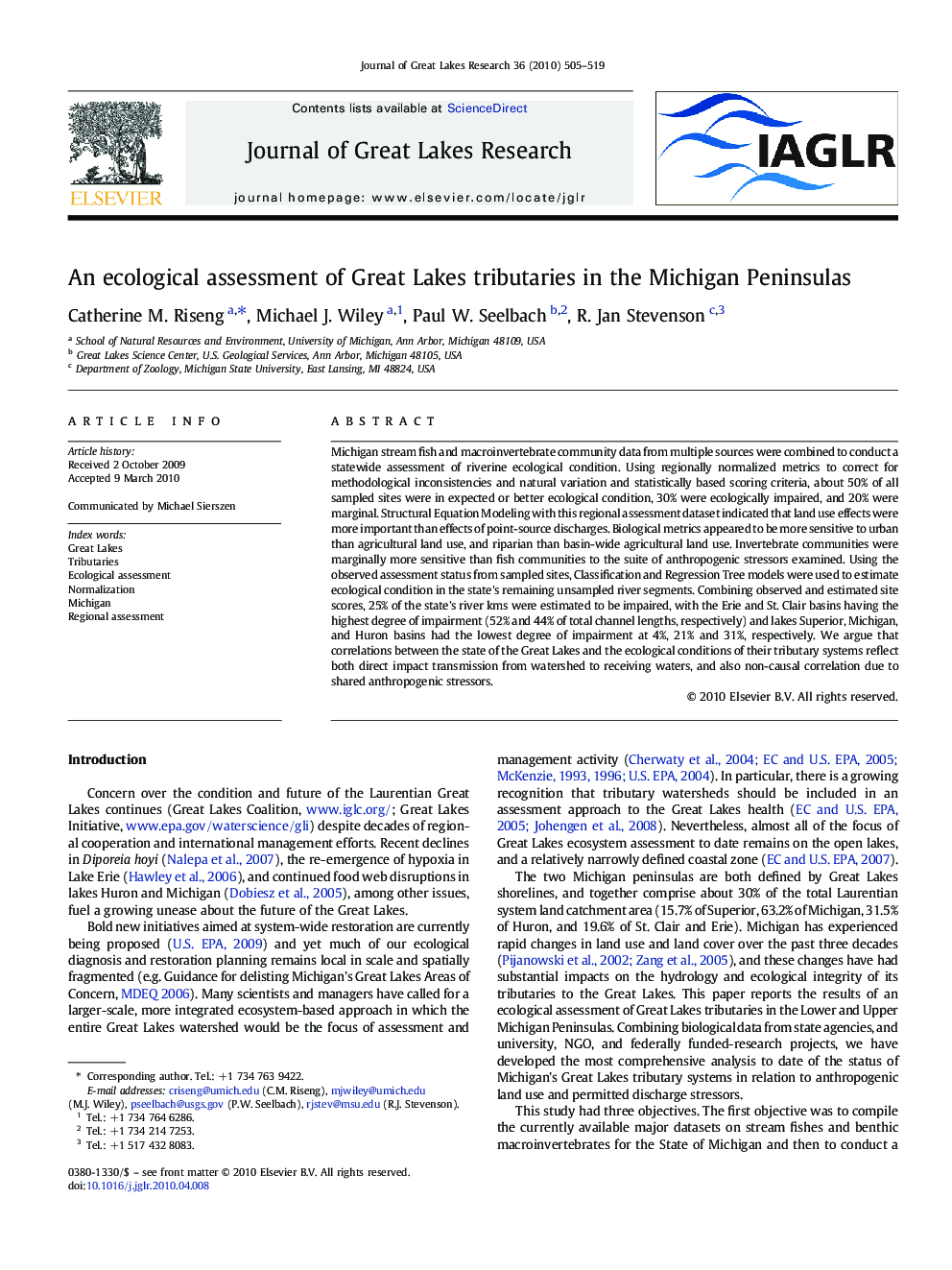| کد مقاله | کد نشریه | سال انتشار | مقاله انگلیسی | نسخه تمام متن |
|---|---|---|---|---|
| 4399101 | 1306717 | 2010 | 15 صفحه PDF | دانلود رایگان |
عنوان انگلیسی مقاله ISI
An ecological assessment of Great Lakes tributaries in the Michigan Peninsulas
دانلود مقاله + سفارش ترجمه
دانلود مقاله ISI انگلیسی
رایگان برای ایرانیان
کلمات کلیدی
موضوعات مرتبط
مهندسی و علوم پایه
علوم زمین و سیارات
علوم زمین و سیاره ای (عمومی)
پیش نمایش صفحه اول مقاله

چکیده انگلیسی
Michigan stream fish and macroinvertebrate community data from multiple sources were combined to conduct a statewide assessment of riverine ecological condition. Using regionally normalized metrics to correct for methodological inconsistencies and natural variation and statistically based scoring criteria, about 50% of all sampled sites were in expected or better ecological condition, 30% were ecologically impaired, and 20% were marginal. Structural Equation Modeling with this regional assessment dataset indicated that land use effects were more important than effects of point-source discharges. Biological metrics appeared to be more sensitive to urban than agricultural land use, and riparian than basin-wide agricultural land use. Invertebrate communities were marginally more sensitive than fish communities to the suite of anthropogenic stressors examined. Using the observed assessment status from sampled sites, Classification and Regression Tree models were used to estimate ecological condition in the state's remaining unsampled river segments. Combining observed and estimated site scores, 25% of the state's river kms were estimated to be impaired, with the Erie and St. Clair basins having the highest degree of impairment (52% and 44% of total channel lengths, respectively) and lakes Superior, Michigan, and Huron basins had the lowest degree of impairment at 4%, 21% and 31%, respectively. We argue that correlations between the state of the Great Lakes and the ecological conditions of their tributary systems reflect both direct impact transmission from watershed to receiving waters, and also non-causal correlation due to shared anthropogenic stressors.
ناشر
Database: Elsevier - ScienceDirect (ساینس دایرکت)
Journal: Journal of Great Lakes Research - Volume 36, Issue 3, September 2010, Pages 505-519
Journal: Journal of Great Lakes Research - Volume 36, Issue 3, September 2010, Pages 505-519
نویسندگان
Catherine M. Riseng, Michael J. Wiley, Paul W. Seelbach, R. Jan Stevenson,